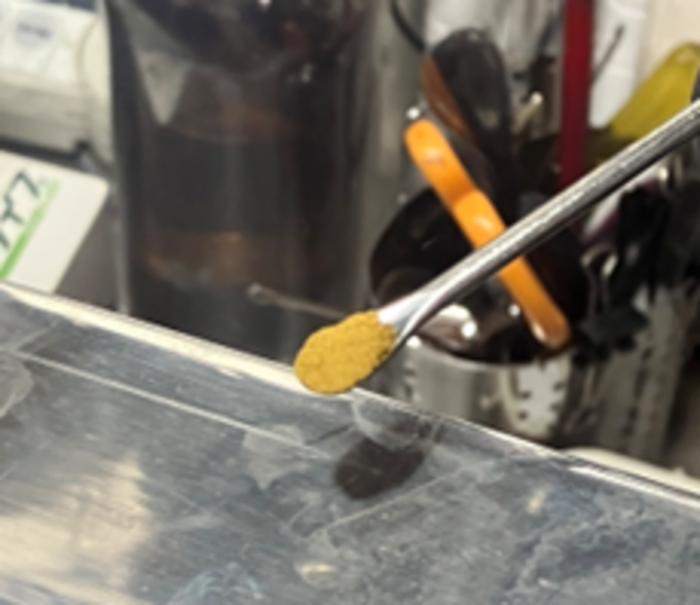The pursuit of greener energy also requires efficient rechargeable batteries to store that energy. While lithium-ion batteries are currently the most widely used, all-solid-state sodium batteries are attracting attention as sodium is far more plentiful than lithium. This should make sodium batteries less expensive, and solid-state batteries are thought to be safer, but processing issues mean mass production has been difficult.

Credit: Atsushi Sakuda, Osaka Metropolitan University
The pursuit of greener energy also requires efficient rechargeable batteries to store that energy. While lithium-ion batteries are currently the most widely used, all-solid-state sodium batteries are attracting attention as sodium is far more plentiful than lithium. This should make sodium batteries less expensive, and solid-state batteries are thought to be safer, but processing issues mean mass production has been difficult.
Osaka Metropolitan University Associate Professor Atsushi Sakuda and Professor Akitoshi Hayashi, both of the Graduate School of Engineering, led a research team in developing a process that can lead to mass synthesis for sodium-containing sulfides.
Using sodium polysulfides (sulfides with two or more atoms of sulfur) as both the material and the flux, which promotes fusion, the team created a solid sulfide electrolyte with the world’s highest reported sodium ion conductivity—about 10 times higher than required for practical use—and a glass electrolyte with high reduction resistance.
Mass synthesis of such electrolytes with high conductivity and formability is key to the practical use of all-solid-state sodium batteries.
“This newly developed process is useful for the production of almost all sodium-containing sulfide materials, including solid electrolytes and electrode active materials,” Professor Sakuda said. “Also, compared to conventional methods, this process makes it easier to obtain materials that display higher performance, so we believe it will become a mainstream process for the future development of materials for all-solid-state sodium batteries.”
The results were published in Energy Storage Materials and Inorganic Chemistry.
About OMU
Established in Osaka as one of the largest public universities in Japan, Osaka Metropolitan University is committed to shaping the future of society through “Convergence of Knowledge” and the promotion of world-class research. For more research news, visit https://www.omu.ac.jp/en/ and follow us on social media: X, Facebook, Instagram, LinkedIn.
Journal
Energy Storage Materials
DOI
10.1016/j.ensm.2024.103307
Method of Research
Experimental study
Subject of Research
Not applicable
Article Title
Utilizing reactive polysulfides flux Na2Sx for the synthesis of sulfide solid electrolytes for all-solid-state sodium batteries
Article Publication Date
27-Feb-2024
COI Statement
The authors declare the following financial interests/personal relationships which may be considered as potential competing interests: Atsushi Sakuda reports financial support was provided by Japan Society for the Promotion of Science.




